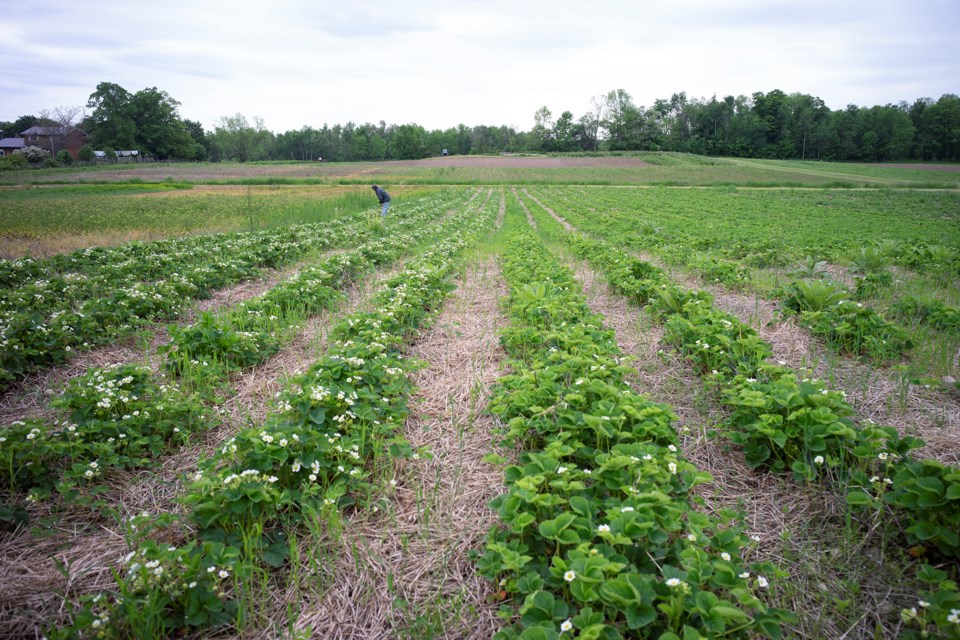This spring, farmers across Ontario are being affected by especially cool, wet spring weather, causing a later-than-usual planting season for many crops, says the Ontario Federation of Agriculture.
Mark Reusser is a vice-president of OFA and owns a farm in New Dundee, southwest of Kitchener. He said conditions this year are very unusual and he isn’t sure Ontario farms have ever seen this much moisture in the ground.
”Some people are not going to get a planting window until it’s too late. Once you get to a certain point, there is no sense in planting a crop because your potential for making a profit disappears,” said Reusser. “Your income depends on you making a profit and if you don’t make it that year, you lose a year’s income.”
Reusser said the stress for farmers not able to plant is very real.
“When people go to the grocery store and look at the food, they can perhaps remember that someone grows it for them here in Ontario. This year the people who grow their food are really struggling,” he said.
Lindsay Oldham operates the family-owned Butt’s Berry and Flower Farm between Rockwood and Fergus, Ontario. He said this year’s crop of strawberries is about 10 days behind.
“It’s just cold and wet and there's no sun to heat anything up,” said Oldham. “I think it’s been raining since last august. We had a wet fall and a wet spring, but it’s just not warm.”
“The wetness might not be so bad if there was heat,” he added.
Last year, the mean temperature in May was 16 C. This year it was just 11.3 C. Only about 7 more millimetres of precipitation fell in May versus the same month last year, but Oldham said the lack of hot days means that moisture isn't evaporating like it should.
"Not only is it wet, but it’s below normal temperatures in the air and in the soil. As a consequence, the crops emerge more slowly and grow more slowly. All of these things reduce your yield and potential profits," he said.
Oldham said he hasn’t seen a combination of cool and wet conditions like this in his 40-plus years of farming.
“My dad is 87 and he’s still on the farm every day and he’s never seen it like this,” said Oldham.
One crop at Butt’s Berry and Flower Farm that is faring better in the wet conditions is asparagus. It is already for sale at the far's roadside market shed.
“The taste is good and the size isn’t bad. I guess for asparagus, lots of water is good, “ said Oldham.
Reusser said his own soybean crops are starting to come up, but are significantly behind schedule.
Even once his corn and soybean crops produce, market pressures out of his control may make them more difficult to sell. China has ceased buying canola oil from Canada and there is an overabundance of soybeans in the North American market because the U.S. is unable to sell them to China.
“Not only are we potentially facing very low crop yields, but we’re also potentially not going to be able to sell what we have and what we can sell is at unusually low prices,” said Reusser. “It’s kind of three things hitting farmers all at once and the stress that causes, I would suggest, is significant.”
To compound the problem even further, Reusser said U.S. farmers are receiving billions of dollars in government subsidies to help with losses they are incurring during the trade disputes with China, which is something he said is not being matched in Canada.
“When your competitor is being supported in the U.S. and we are not being supported here, that doesn’t sit well,” said Reusser. “I am being polite.”
